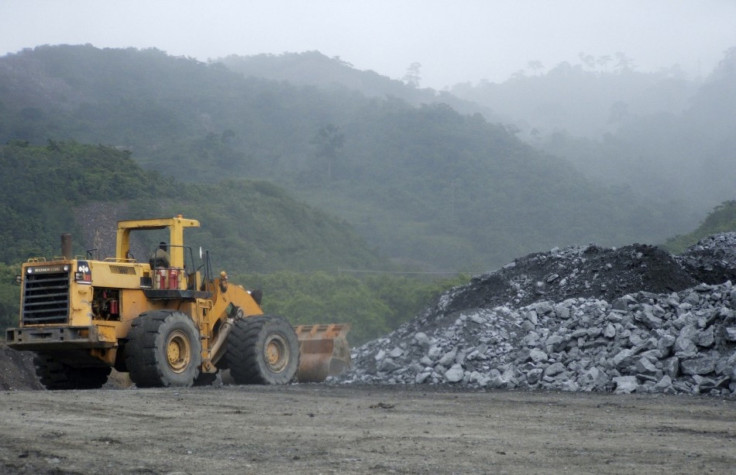AngloGold Ashanti 4Q Down, Safety Stoppages Cited

(REUTERS) -- AngloGold Ashanti, the world's third-largest gold producer, became the latest South African miner to report a surge in output-disrupting safety stops on Wednesday as it unveiled a sharp fall in fourth-quarter earnings.
South Africa's mineral resources department has ramped up efforts to reduce accidental deaths in the country's mines, the world's deepest and among its most dangerous.
Fatalities among mostly black miners are far below those reached under white-minority rule, but around 10 workers are still killed underground each month in the country.
AngloGold, which gets 40 percent of its global output from South Africa, said the interruptions were a significant risk to forecasting production. It estimated that output for 2012 would be at 4.3 million to 4.4 million ounces of gold.
The safety drive across the gold and platinum industries in South Africa has cut output and is a key reason behind a 17 percent spike in spot platinum so far this year.
AngloGold Chief Executive Mark Cutifani told a presentation that the stops, known as Section 54s because of the regulation invoked, cost 73,000 ounces in lost output last year, worth about $126 million at current spot prices.
But he said an acceleration in the fourth quarter accounted for 50,000 of those lost ounces and that the nature of the stops was inadvertently raising new risks.
The concern we have in a deep underground gold mine (is that) when you stand an operation for five days, you are creating new safety hazards that we believe in certain cases are well in excess of the hazard that you are trying to correct, Cutifani said.
It is now an industry issue. We have as an industry come together with a view to again engaging with the department of mineral resources in a conversation that gets us all to the right outcome, he said.
FOURTH QUARTER EARNINGS DOWN
For the full year the group posted record adjusted headline earnings of $1.3 billion, which translated into $3.36 a share - no surprise given the historic peaks the gold price scaled last year.
But it reported a worse-than-expected drop in fourth-quarter earnings as environmental and other costs bit.
Adjusted headline earnings per share for October-December fell 35 percent to 76 U.S. cents per share, from 118 cents in the previous quarter. The results were well below the average estimate of 109.4 cents in a poll of five analysts by Reuters.
The company said it was hit by rising cash costs, higher levels of unsold gold and the impact of a $105 million provision related to environmental costs such as mine rehabilitation.
The average dollar gold price during the quarter was down marginally to $1,684 per ounce.
But weakness in the South African currency meant in rand terms the average price during the October-December quarter was up 12 percent to a record 438,000 rand per kg.
AngloGold gets about 40 percent of its output from its home base, so this helps its bottom line but not to the same extent as smaller rivals such as Harmony Gold, which rely on South Africa for a far higher percentage of their output.
It declared a fourth-quarter dividend of 200 South African cents a share, more than double the third-quarter payout of 90 cents. The full-year dividend rose to 380 cents from 145 cents in 2010.
We will continue to look to grow the dividend where appropriate, Cutifani said on a media call after the announcement. He also said he saw the gold price poking through $2,000 an ounce this year.
Spot gold edged up slightly to $1,726.00 an ounce in early trade on Wednesday. AngloGold's share price was down 1.45 percent, underperforming slight gains on Johannesburg's benchmark index.
© Copyright Thomson Reuters 2024. All rights reserved.






















